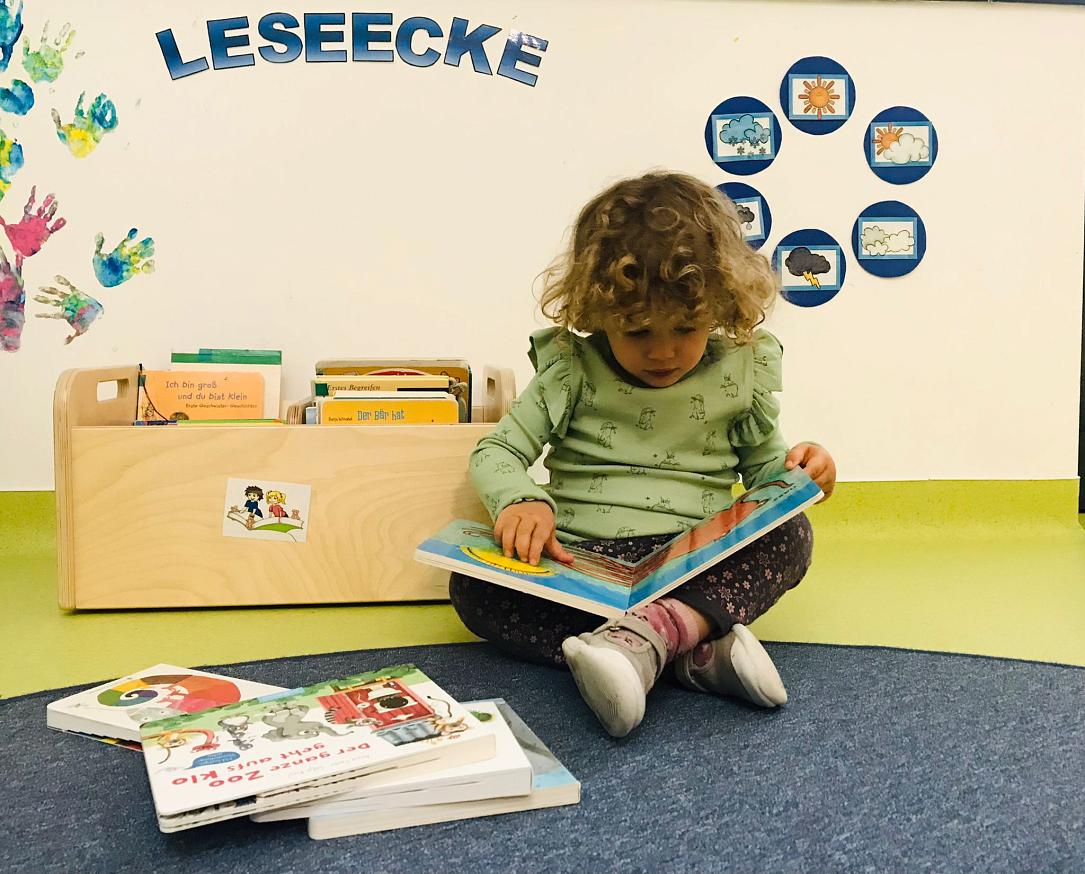(P) First days in kindergarten - How is the accommodation of children at DSBU



What are the first steps a child who starts kindergarten at DSBU takes?
Transitions between the parental home and kindergarten/crèche are particularly important for life’s journey. They are crisis situations, which can be stressful but can also offer great opportunities for development. Close cooperation and collaboration between all the specialist staff and parents promote the development of the child during this period of transition. Parents and Early Years Practitioners have a particular joint responsibility regarding the transitional situations, which are characterized by the following principles:
- Binding structures ensure continuity of cooperation, its quality and sustainability.
- Parents are perceived as partners in education and upbringing and are supported and encouraged in this role. During our settling-in sessions, parents are invited to join our kindergarten program as long as the child feels safe and happy.
- Ensuring a strong key person system is held within the kindergarten/crèche and will help children to settle. The key person will be available to greet the child and the parents to ensure that the child can build up trust and confidence.
- Many children have comforters for some shape or form whether it is a blanket, teddy, tag, bottle, or dummy. These are an important source of comfort for a child.
- Observations are crucial in getting to know a child and helping them to settle into kindergarten/crèche. If there are any parts of the routine of a child, it enables the staff to tune into a child´s interest which means appropriate activities can be planned that a child will enjoy.
What are the activities in which the children are involved?
Most beloved activities of children are certainly outdoor activities. We go on outside trips 3 times a month at least. The benefits of being outside are multiple:
Open Spaces Promote Agility - outdoor activities will help in the development of healthy habits which are initiated at the early stages of a child´s life and can stay with them for life.
Fresh Air Does Wonders - Children should be encouraged to play outdoor games.
Social Interactions Are Nurtured - can be a blessing to any child who wants to socialize with children of his age.
Improves Attention Span - The ability to focus and concentrate on a task at hand is of prime importance for children.
Improves Eyesight - By playing outside, the children can improve their long-distance vision. It is important for children to be exposed to daylight as a precautionary eye-care measure that improves their vision.
Outdoor Activities – A Key to Holistic Development - Establishing a strong connection between mind and body, outdoor games promote better mental health in children.
What is the schedule of an ordinary day?
Between 7:30 AM – 9:00 AM, kids are attending kindergarten and it’s time for free play. Then, the children have breakfast, and after that, we have de morning circle and educational activities. Lunch is taken between 11:45-12:30, followed by nap time (or quiet time for those who are not sleeping). Between 15-18, children participate in afterschool activities (Tennis, Improtheater, Streetdance, Multisport, Schoolgarden, additional German lessons, English for beginners, Yoga).
What do parents need to know when enrolling their child at DSBU?
We go outside no matter the weather. Every voice is being heard, every opinion counts. Children decide by themselves what to do/play/learn. Practitioners need to develop educational activities out of children’s interests.
Why mixed age groups?
This form of grouping can be very beneficial for social learning. It gives the older children the opportunity to take charge and watch out for the younger children. The older children will naturally feel a responsibility to take care of the others, they find themselves as role models for the other children. The younger children will be learning by example.
How fast can a child learn German?
Every child learns at their own pace as each child is an individual human being. However, a child should be at least two years with us before attending primary school.
Together, we manage to create and strengthen strong friendships with children. At DSBU kindergarten, children learn, under the careful guidance of teachers, to become cooperative and attentive to each other, to resolve conflicts, and to acquire the ability to build relationships on their own responsibility. Find out more on www.dsbu.ro.
(p) - This article is an advertorial.